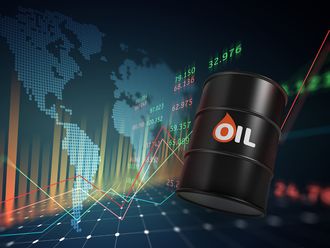It is not often a country agrees to forego its competitive advantage to somebody else and when it happens, one has to ask why.
A ministry of oil spokesman in Iraq said last week that Iraq will allow an Iranian gas pipeline which plans to take gas to Syria to cross its territory. This followed an Iranian spokesman Mourtada Nouri who announced that "At a meeting on Wednesday with an Iranian delegation, Oil Minister Hussain Al Shahristani said he was willing to let a gas pipeline from Iran to Syria pass through his country" and that "both sides have agreed to establish a committee to study the technical feasibility of the project."
Now why would Iraq do that if Syrian gas requirements can be met by existing resources and by Iraq as it seeks to develop three free gas fields and boost oil production to 12 million barrels a day (bpd), which will produce a huge volume of gas over and above Iraq's requirements?
What happened to a previous agreement with Syria to develop the Iraqi Akas gas field, close to the Syrian borders and network with an ultimate abundant production? What will happen to Syrian commitment to the Arab Gas Pipeline where the second stage will be completed by mid 2011 and Egyptian gas will reach Turkey to export surplus or take flow in reverse to feed the Syrian network in emergencies as stipulated in a Syrian Turkish memorandum of understanding in 2009?
What happened to a recent Syrian request to Egypt to increase Syria's quota from this pipeline? What happened to A Syrian Azerbaijan memorandum of understanding and a similar one with Iran to take gas from their supply to Turkey through the above link?
All the above questions put together do not support taking Iran gas through Iraq to Syria.
Admittedly Iraq's gas production currently is facing many difficulties and it has been absurdly suggested by some that Iraq itself should import gas from Iran at a time when Iraq is flaring almost 700 million cubic feet a day (mcfd) which can be easily processed once Iraq plants are maintained properly.
At the same time Iraq is consuming 800 mscfd and even if all power stations are converted to gas, Iraq's demand cannot be more than 2,000 mcfd and can be met by its gas processing facilities once maintained and crude oil production improves.
Even if Iraq's demand doubles or trebles, the associated gas that will come with an increase of oil production to 12 million bpd, which some sources put at 10,000 mcfd will be far more than sufficient for Iraq and surplus can be easily exported to Syria, a natural market for Iraq.
The three free gas fields of Akas, Mansouriya and Sieba, which are being currently offered for development, are likely to add further 1,500 mcfd as a back up to the associated gas and export.
Even some expensive LNG projects and gas injection schemes are considered to handle surplus Iraqi gas and Shahristani is well aware of that. Moreover, if the rates of oil production fall below the above target, Iraq will still have surplus gas and further free gas fields can also be called for development.
On the Syrian outlook, the marketed natural gas in 2008 was close to 575 mcfd and has been steady for some time. Even if Syria converts all its fuel oil burning power stations to gas its ultimate requirements cannot be more than 1,400 mcfd by a rough estimate.
Allowing Iran gas to pass through might not harm Iraq alone but may even back up the flow from Egypt where a substantial investment is already sunk. This will be a blow to one of the most successful pan Arab projects.
But many pipeline projects between Iran and Iraq have failed to materialise and this one is no different.
The writer is former head of Energy Studies Department in Opec Secretariat in Vienna.












